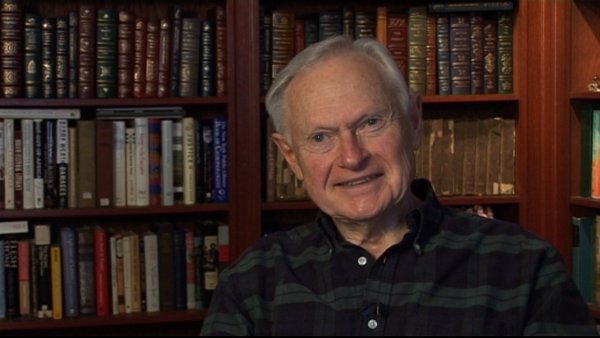NEXT STORY

How our brains work
RELATED STORIES

NEXT STORY

How our brains work
RELATED STORIES


|
Views | Duration | |
|---|---|---|---|
| 31. The first book - Doctors: The Biography of Medicine | 270 | 03:01 | |
| 32. My way to The New Yorker | 260 | 03:21 | |
| 33. An idea for a book worth writing | 270 | 03:55 | |
| 34. Working on How We Die | 290 | 02:42 | |
| 35. Who will publish How We Die? | 247 | 02:59 | |
| 36. The great success of How We Die | 283 | 05:19 | |
| 37. My method of writing | 286 | 04:04 | |
| 38. The concept of a changing brain | 261 | 02:38 | |
| 39. How our brains work | 297 | 03:33 | |
| 40. 'Hey boy, have you seen the eyes of that scrub nurse?' | 261 | 02:05 |


Well, when you've had a depression, and boy did I have a depression, you get a lot of therapy. You spend a lot of time with psychiatrists, of whom my favourite sort are the psychoanalytically-oriented. And you learn a lot from your own responses and from the kinds of things that come to your mind. You learn a lot about the way the subconscious functions, the unconscious functions, that it does have a symmetry to it, that it does have an order to it, that it does have in it enormous amounts, not just of information, but of knowledge, and not just of knowledge, but of wisdom that you didn't know were there.
Another thing I learned a long time ago is that when you talk to people who are very thoughtfully and well educated, and who are in fields that involve a lot of thinking, things come out of you that you didn't know were in you, just in the conversation. And so, one of my main pathways to the writing is the talking. Spending long lunches, or just an hour talking, getting somebody's ideas and giving him or her my ideas, and things just come out when you write them.
I didn't know, when I first started writing, any more than anybody knew, about the plasticity of the brain, about the way the brain changes. You know, here I am, talking away, and from the time I started talking till the time I finish, whenever that will be, my brain has changed. The brain of anybody listening to me is going to change, and it's going to change not just physiologically, biochemically, it's going to change physically.
The synapses, some will get stronger, some will get weaker, there'll be different pathways that weren't being used, all of course on a microscopic level, but it's… they're going to change.
Sherwin Nuland (1930-2014) was an American surgeon and author who taught bioethics, the history of medicine, and medicine at the Yale University School of Medicine. He wrote the book How We Die which made The New York Times bestseller list and won the National Book Award. He also wrote about his own painful coming of age as a son of immigrants in Lost in America: A Journey with My Father. He used to write for The New Yorker, The New York Times, Time, and the New York Review of Books.
Title: The concept of a changing brain
Listeners: Christopher Sykes
Christopher Sykes is a London-based television producer and director who has made a number of documentary films for BBC TV, Channel 4 and PBS.
Tags: depression, therapy, psychiatrist, writing, brain
Duration: 2 minutes, 38 seconds
Date story recorded: January 2011
Date story went live: 04 November 2011